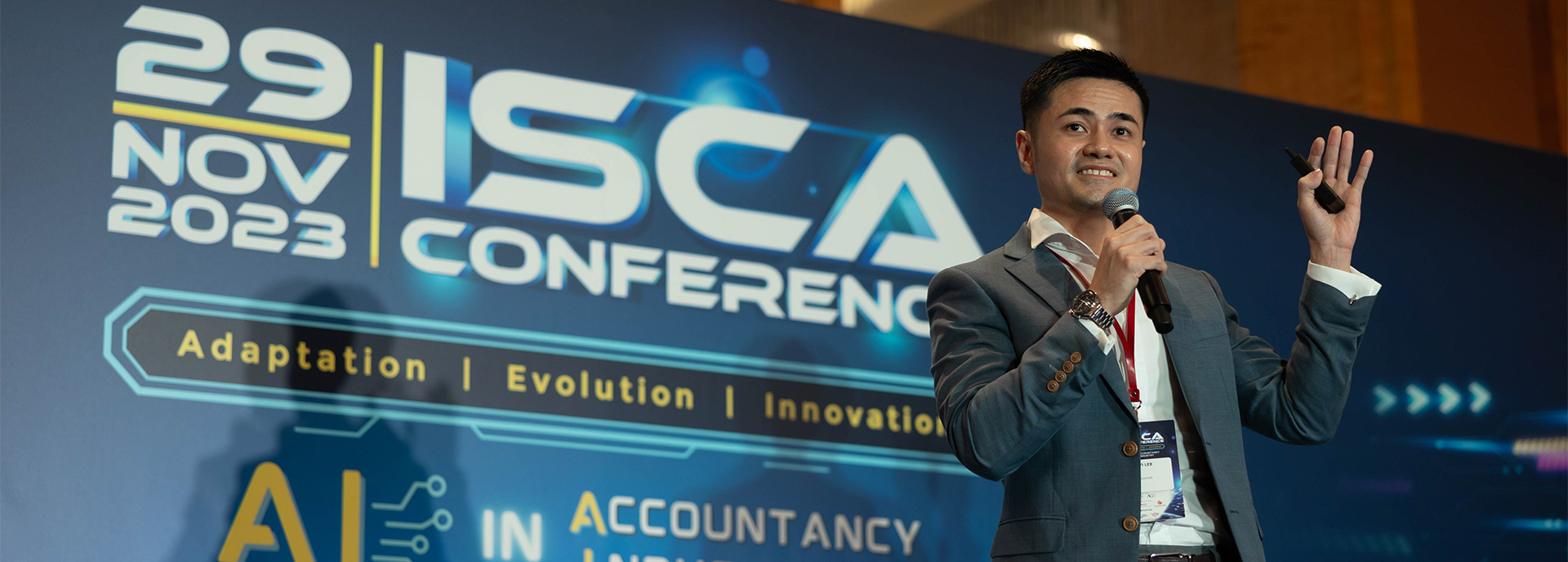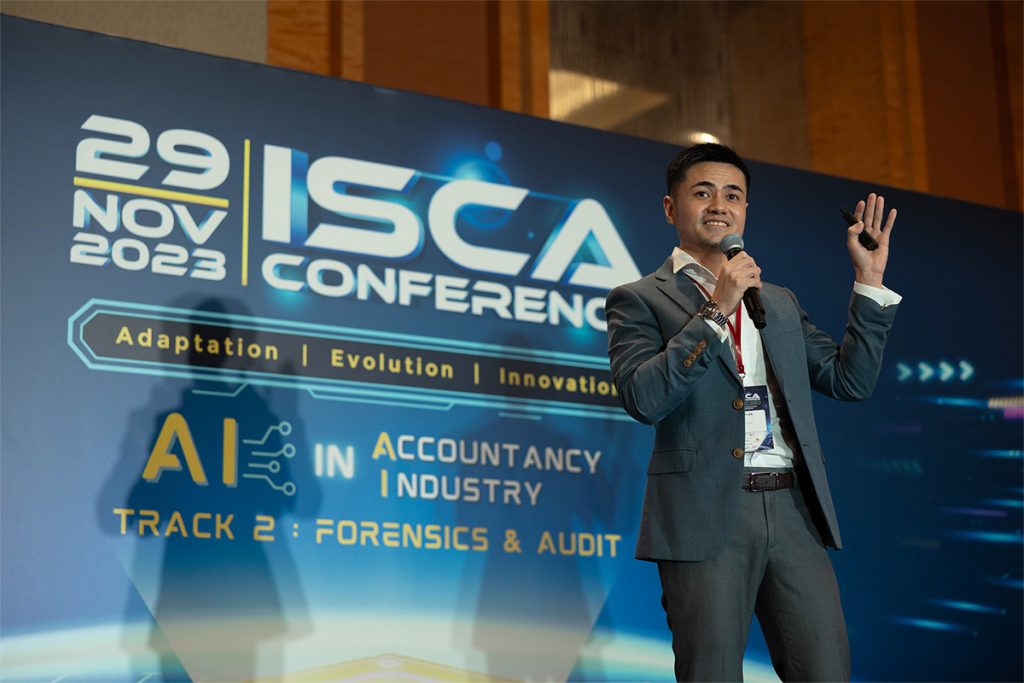
The afternoon session of ISCA Conference 2023 cast the spotlight on a hot-button topic – sustainability assurance. Tackling it at the event was Lee Bing Yi, Partner, Sustainability & Climate Change, Financial Services Assurance, PwC Singapore, who spoke about the “trust deficit” among investors when it comes to sustainability reporting.

Referring to a PwC study, Mr Lee pointed out a worrying finding, that 94% of investors believed there is at least some amount of “greenwashing” in today’s sustainability reports. Currently, the majority of external assurance obtained over such reports is limited assurance. However, there is growing investor demand for reasonable assurance to enhance confidence over the reliability of such reports. The problem is exacerbated by the fragmentation of assurance frameworks used. To address this problem, IAASB developed ISSA 5000, a proposed overarching standard that provides a global baseline for sustainability assurance engagements. The standard is expected to be finalised by 2024 and effective in 2026, with early adoption permitted. ISSA 5000 builds on the principles of existing IAASB assurance standards such as ISAE 3000, he noted, but incorporates requirements and guidance unique to sustainability reporting. Being framework-neutral, ISSA 5000 can be used for assurance on sustainability information prepared using multiple reporting frameworks.
Mr Lee highlighted three key areas addressed by ISSA 5000:
Mr Lee emphasised the importance of education and training for both accountants and non-accountants to effectively apply the new standard. With ISSA 5000, he also expects the scope of sustainability to become broader and encompass forward-looking information. Going forward, he is optimistic that the sustainability assurance landscape will mature significantly beyond the current state, where limited aspects of the sustainability report are assured.
Rehash the excitement of ISCA Conference 2023 in the video here!